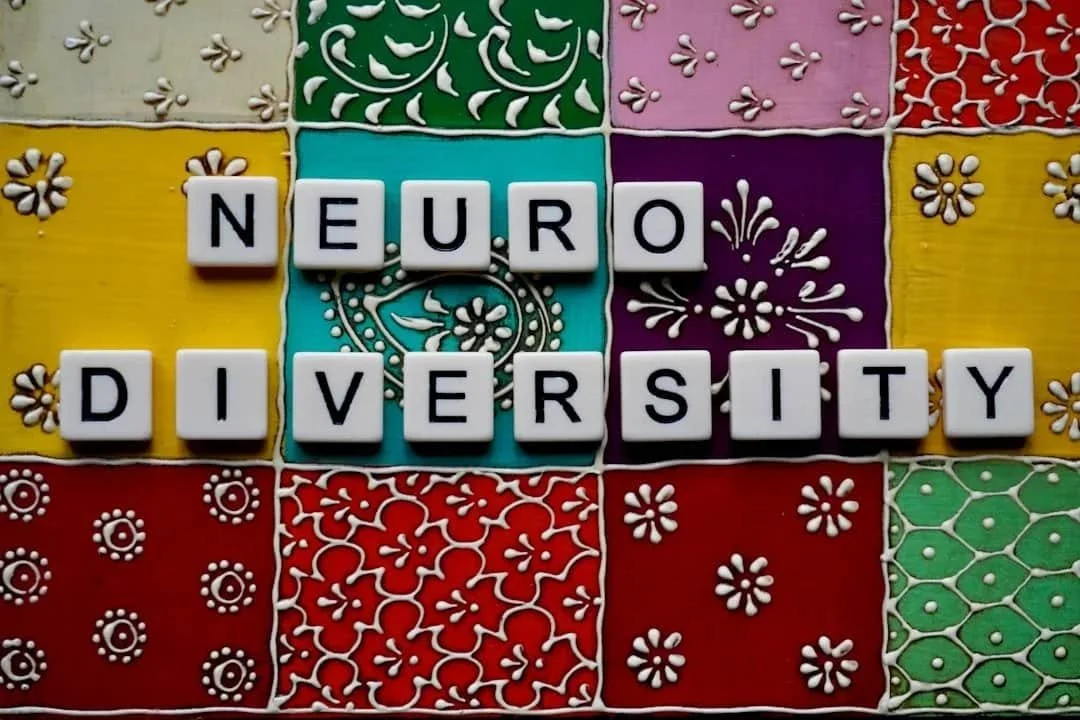All neuro-types are welcome here.
ADHD, HSP & Neurodivergent Adults
You don’t need to change who you are. You just need a space where you don’t have to mask.
Therapy that Honors How Your Brain Works
If you're neurodivergent—whether you identify as autistic, ADHD, highly sensitive, or somewhere else on the neurodivergent spectrum—you've probably spent much of your life feeling like you had to fit in, tone it down, or be more “normal.” You may have learned to mask your needs to survive school, work, or even relationships. But that constant pressure to perform can lead to deep fatigue, burnout, anxiety, or shame. You deserve therapy that affirms your neurodivergence, not pathologizes it.
At Love Power Therapy, I work with neurodivergent adults across California who are tired of trying to fit into boxes that were never made for them. Whether you were formally diagnosed or self-identify, your experience is valid. Whether you’re newly exploring your neurodivergence or you’ve been on this journey for a long time, it’s okay to need support. Therapy can be a place where you get to take off the mask and finally exhale.
I create a space where you don’t have to explain why things feel overwhelming. You don’t have to justify needing structure, clarity, or more time. You don’t have to mask your natural way of thinking or feeling. Instead, we’ll explore what thriving looks like for you.
You Don’t Have to Fit a Checklist to Belong Here
Whether you relate to one of these identities or you're still exploring what fits, you're welcome here. I don’t believe in rigid labels or one-size-fits-all approaches. I work relationally and holistically—helping you understand your patterns, rewrite harmful narratives, and build a life that actually works for you.
Therapy isn’t about “fixing” your neurodivergence. It’s about supporting your nervous system, self-trust, and sense of belonging—especially in a world that hasn’t always understood you.
Neurodiversity-Affirming Therapy
I provide neurodivergent-affirming, trauma-informed, and culturally attuned therapy. If you're also BIPOC, queer, or an immigrant/child of immigrants, I see how these identities intersect with your neurodivergence—and how exhausting it can be to feel misunderstood on multiple levels. Because many of my clients are high-achieving professionals or creatives, we often work on decentering how you “should be” and start centering who you are. And therapy doesn’t have to feel overwhelming. I’ll guide you at your pace, with clarity and compassion.
You’re not broken. You’re not too much. You’re not failing.
You’re operating in a world that wasn’t designed with your needs in mind.
Let’s look at some terms:
Neurodivergent
The term neurodivergent describes brains that process, learn, and experience the world in ways that differ from the dominant "neurotypical" standard. It’s not a diagnosis—it's a broader identity that includes people with ADHD, autism, dyslexia, sensory processing differences, and more. Some clients identify strongly with the label “neurodivergent” even without a formal diagnosis. It can be a powerful way to reframe your experiences—not as flaws to fix, but as differences to understand and honor.
If you’ve ever felt like the world wasn’t built for your brain, like you had to mask or constantly adjust yourself to “keep up,” you may be neurodivergent. Therapy can help you unpack those experiences and find ways of living that feel more aligned with who you truly are.
ADHD
ADHD (Attention-Deficit/Hyperactivity Disorder) in adults often shows up as more than just distractibility. You may have a fast-moving brain that’s constantly switching gears, struggling to follow through on tasks—even ones you want to complete. It can feel like you're either overwhelmed and overstimulated, or stuck in paralysis. ADHD isn’t a lack of discipline—it’s a different way of processing attention, energy, and motivation.
Adult ADHD symptoms can look like:
Difficulty starting or finishing tasks
Time blindness or chronic lateness
Forgetfulness and losing things easily
Hyperfocus on things you love—but zoning out during repetitive and boring tasks
AUTISM
Autism in adults often goes unnoticed or misdiagnosed—especially in women, people of color, and queer folks. You might have grown up feeling like you were “too sensitive,” “too intense,” or “too different,” and worked hard to camouflage your traits. Many autistic adults are high-achieving, creative, or deeply introspective—but often feel misunderstood. Therapy can support you in unmasking, navigating burnout, and embracing your unique ways of being.
Signs of autism in adults:
Sensory sensitivities (to noise, light, textures, smells)
Social exhaustion or difficulty with unspoken rules
A need for routines, sameness, or structure
Intense special interests or passions
A deep sense of empathy and justice
HSP
A Highly Sensitive Person (HSP) isn’t a diagnosis, but a temperament trait. About 15–20% of people are biologically more sensitive to their environments, emotions, and subtleties. If you’ve ever been told you’re “too sensitive” or that you “feel too much,” you might be an HSP. Many HSPs are caregivers, creatives, or helpers—but they may also struggle with anxiety, perfectionism, or emotional burnout.
Common HSP traits include:
Easily overwhelmed by noise, chaos, or bright lights
Deep processing of emotions and experiences
Strong empathy and attunement
Needing more time to recharge or decompress
Being deeply moved by art, music, or nature

Neurodiverse & Mixed Neurotype Relationships
A Relational Approach That Affirms Neurodivergence
Being in a relationship where one or both partners are neurodivergent—whether ADHD, Autism, HSP, or otherwise—can bring incredible strengths, creativity, and depth. But it can also come with communication breakdowns, misunderstandings, and conflict patterns that feel frustrating or confusing. These are not signs that your relationship is broken. They are signs that your brains process the world differently—and that you may need new ways to understand, attune, and connect.
You may both be committed to the relationship, yet feel stuck in cycles of:
Emotional shutdowns or sensory overload during conflict
Misreading tone, facial expressions, or intent
Differences in social energy, executive functioning, or time management
Guilt, resentment, or burnout from trying to meet each other’s needs without the right tools
What Is a Mixed Neurotype Relationship?
A mixed neurotype relationship is one where one partner is neurodivergent (e.g., autistic, ADHD, HSP) and the other is neurotypical—or where both partners are neurodivergent in different ways.
Because neurodivergence impacts things like sensory sensitivity, emotional processing, communication style, and pacing, it’s common for partners to unintentionally miss each other—despite caring deeply.
In therapy, I help couples:
Understand each other’s neurotypes and nervous systems
Learn how masking, burnout, or executive dysfunction impact connection
Identify unhelpful patterns and create clearer ways to communicate
Normalize differences without pathologizing anyone
Why Neurodivergent Clients Come to Therapy:
Navigating burnout from masking or people-pleasing
Feeling overwhelmed by work, relationships, or daily tasks
Struggling with sensory overload or emotional regulation
Difficulty setting boundaries or saying no
Internalized shame, anxiety, or perfectionism
Feeling “too much” or “not enough”
Navigating relationships and communication differences
My Approach:
I provide neurodivergent-affirming, trauma-informed, and culturally attuned therapy. That means:
I won’t try to “fix” you—I work with your nervous system, not against it
I support unmasking, self-advocacy, and honoring your energy
I offer flexible structure, clear communication, and visual or written tools if that’s helpful
I respect the nuances of intersectional identities, including race, culture, and queerness
I support both formally diagnosed and self-diagnosed clients





